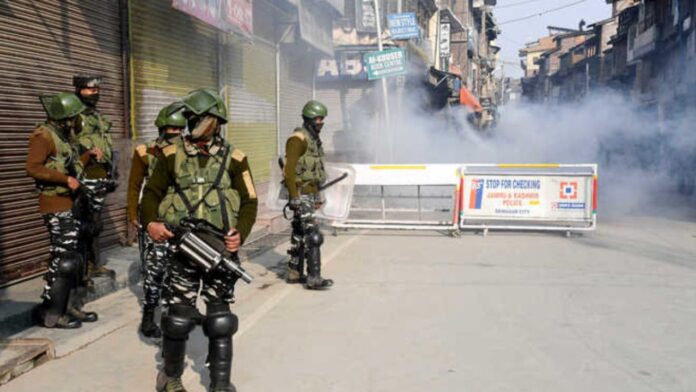NEW YORK: Eurasia Review, a journal based in the U.S. State of Oregon, published an open letter by Amnesty International and five other reputable organizations calling for an end to human rights violations in Indian-Occupied Kashmir.
The letter, dated 23 August and addressed to representatives of G20 member countries, guest countries and invited international organizations, also called for the release of jailed human rights defenders and political prisoners ahead of the G20 summit in New Delhi from September 9-10.
Other co-signers of the letter are the Asian Federation Against Involuntary Disappearances, the Asian Forum for Human Rights and Development, CIVICUS: World Alliance for Citizen Participation, Front Line Defenders, and the Kashmir Law and Justice Project,
The letter brought forth concerns regarding the serious human rights violations occurring in Indian Occupied Kashmir.
“As your leaders prepare to attend the G20 Summit in September 2023, we urge your government to raise these issues directly and forthrightly with the government of India in accordance with your obligations under international law and call on India to adhere to its international legal obligations,” the letter states.
The letter says that since 2019 – when India revoked Article 370A and Article 35A, stripping Jammu and Kashmir’s autonomous status – the government has “continued its repressive policies including restricting freedom of expression, peaceful assembly and association and failed to investigate and prosecute alleged violations committed by its military, paramilitary, police and other forces”.
In November 2021, prominent human rights defender Khurram Parvez was arbitrarily detained by India’s National Investigation Agency. Parvez, the director of the Jammu Kashmir Coalition of Civil Society (JKCCS), was arrested under the Unlawful Activities (Prevention) Act for “funding terrorism under the garb of protection of human rights”.
In March 2023, the National Investigation Agency summoned noted Kashmiri journalist Irfan Mehraj, who had worked with JKCCS and arrested him for his association with the non-profit organization.
“The Bharatiya Janata Party uses extreme law and policy to further forms of coloniality in Kashmir to establish a Hindu nationalist state,” Angana Chatterji, a scholar at the University of California, Berkeley, said in a recent statement. –Agencies




